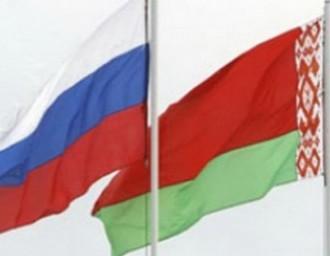Time to save Belarus from Russia, again?

The economic situation in Belarus in the near future will probably force the regime to sell plenty of its most profitable enterprises to Russia.
As a consequence, Belarus will become more dependent on its eastern neighbour – not only politically but also economically.
In a few years this process may be irreversible due to the current ties between the two countries (the State Union, close military co-operation, a Common Economic Space, and the increasing debt that Belarus has to pay Russia).
Representatives of the Belarusian regime will want to avoid such a scenario because for them Russian hegemony could mean the end of their power.
Paradoxically, if Russia tightens the screws it may contribute to Belarus’ dialogue with the European Union.
Therefore, the next few months are a good time for the EU to undertake negotiations with the regime and demand the release of political prisoners, especially as Belarusians want to be present at November's Eastern Partnership summit in Vilnius.
Salami-slice strategy
In recent weeks, more and more often we hear that Belarus is ready to sell its most profitable industrial enterprises.
The list is topped by the Navapolatsk Naftan refinery and Minsk Wheel Tractor Plant (MZKT). But there are others in the queue – the Minsk Automobile Plant, Grodno Azoty (a fertilizer factory) and Integral (a plant producing electronic components).
It is also well known that the Russian side is interested in buying Belaruskalij (another plant that produces fertilizers) and the Mozyr petrol refinery.
Probably, Naftan will be committed in return for increased oil supplies to Belarus.
Russian companies Surgutneftegaz or Transneft are also interested in buying a recently-upgraded refinery with which they are co-operating, especially since they do not have enough of their own refineries capable of producing fuel corresponding to EU standards.
The sale of the Naftan refinery may be the easiest way to ensure Belarus will have oil supplies at low prices, but the game is also about obtaining another Russian loan.
In March this year Belarus asked for about $2 billion in credit, but its request was rejected by the Russian authorities. The Belarusians did not give up and still promise that this amount will be allocated entirely to the modernisation of its enterprises.
If Russia buys President Alexander Lukashenka's enterprises piecemeal it will mean that Belarus will deepen its dependency on its eastern neighbour.
The sales will mean the Belarusian authorities will continue to operate without plans to improve the economic situation of the country or to develop other sectors of the economy to ensure its normal operation even after the sale of its most profitable businesses.
These actions may also have social consequences. If subsidies for electricity, water and houses worsen, many Belarusians may be unable to sustain their families.
Can the West help?
The question thus arises whether the European Union and other Western countries could or should help Belarus?
The options (not just theoretical) are: another International Monetary Fund loan, this time more strongly fortified by the necessity to carry out specific modernisation reforms, or modernisation support as part of both the EU's Dialogue for Modernisation and its Eastern Partnership policy.
However, the question the EU must ask is, is it worth it?
On the one hand, it may become just another supporter of the regime, which will only prolong its duration.
On the other hand, there is still hope of initiating changes in Belarus, not only economically but also politically.
In the end, the question of how important Belarus is from a strategic point of view for the European Union must be answered.
Does the EU want a sovereign Belarus whose citizens will be able to decide their future, or is it interested in just having a stable and peaceful neighbour and border, no matter who is in power?
If the first, then the EU should develop a plan of action towards Belarus and consistently implement it.
If the second, then it is high time to revise the EU’s eastern policy.
-
03.01
-
07.10
-
22.09
-
17.08
-
12.08
-
30.09








































